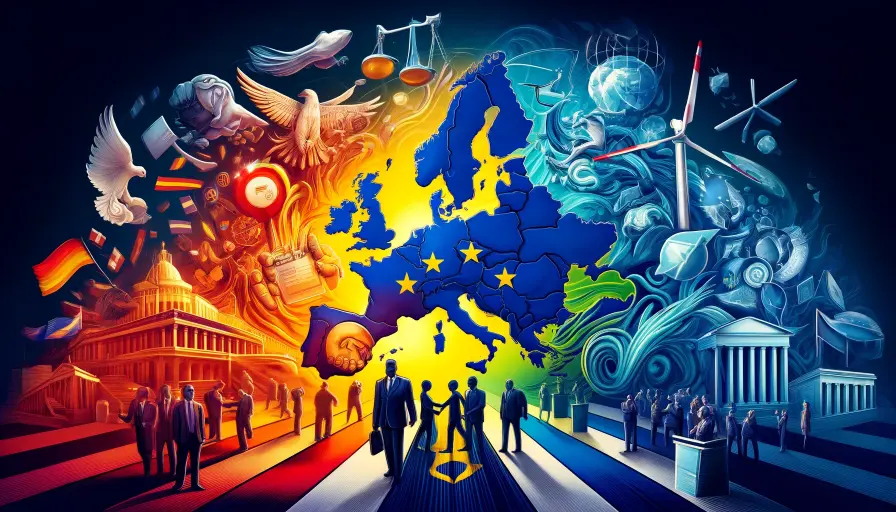The European Union (EU) elections are pivotal as they shape the political landscape of the EU Parliament, affecting legislation, policies, and the direction of the Union.
The composition of the EU Parliament determines the legislative priorities for the next five years. This affects laws and regulations on issues such as trade, climate change, immigration, and digital policy.
The results impact the influence of individual member states within the EU. Countries with strong representation in the winning coalition can push their national agendas more effectively.
National politics are influenced by the EU elections, as they reflect and sometimes amplify domestic political trends. Success or failure in the EU elections can affect the stability and policies of national governments.
There are several main issues at stake.
Liberal parties:
Climate change: Liberals emphasize the need for aggressive climate policies, pushing for renewable energy, carbon neutrality, and adherence to international climate agreements.
Human rights and social issues: Promoting human rights, gender equality, LGBTQ+ rights, and social justice is central to their platform.
Economic integration: Advocates for deeper economic integration, common fiscal policies, and support for the European single market.
Immigration and refugees: Support for more humane immigration policies and better integration of refugees.
Conservative Parties:
Sovereignty and national identity: Focus on preserving national sovereignty and identity, often resisting deeper EU integration.
Security and immigration control: Prioritizing stricter immigration controls, border security, and measures to combat terrorism.
Economic policies: Emphasis on fiscal conservatism, reducing EU regulations, and promoting free market policies.
Cultural conservatism: Upholding traditional cultural values and opposing policies perceived as socially liberal or progressive.
Right-wing parties are gaining power due to several factors.
Economic stagnation and inequality have driven voters to support parties promising change and economic protectionism.
Increasing immigration and the perceived strain on public services have fueled support for parties advocating for stricter immigration policies.
A growing desire to reclaim national sovereignty from the EU has bolstered right-wing parties.
Concerns about cultural changes and the loss of traditional values resonate with many voters.
A shift towards conservative and right-wing policies could lead to stricter immigration controls, reduced emphasis on climate policies, and a pushback against deeper EU integration.
Rising nationalism may challenge the cohesion of the EU, leading to more conflicts between member states and between national governments and EU institutions.
A more fragmented EU Parliament could result in legislative gridlock, making it difficult to pass comprehensive policies on key issues.
The balance of power will shape debates on the future of the EU, including potential reforms, the role of EU institutions, and the extent of integration.
The EU will likely face significant debates and potential reforms driven by the changing political landscape. Issues of sovereignty, immigration, and economic policy will be at the forefront. The direction taken will depend on the ability of different political factions to find common ground and navigate the complex dynamics of the EU Parliament.
The rising influence of right-wing parties could lead to more conservative policies, impacting the EU’s approach to integration, climate change, and social issues.
What this means is that the next five years will be critical in determining the future trajectory of the European Union. Until then, Europeans will need to learn to compromise.
